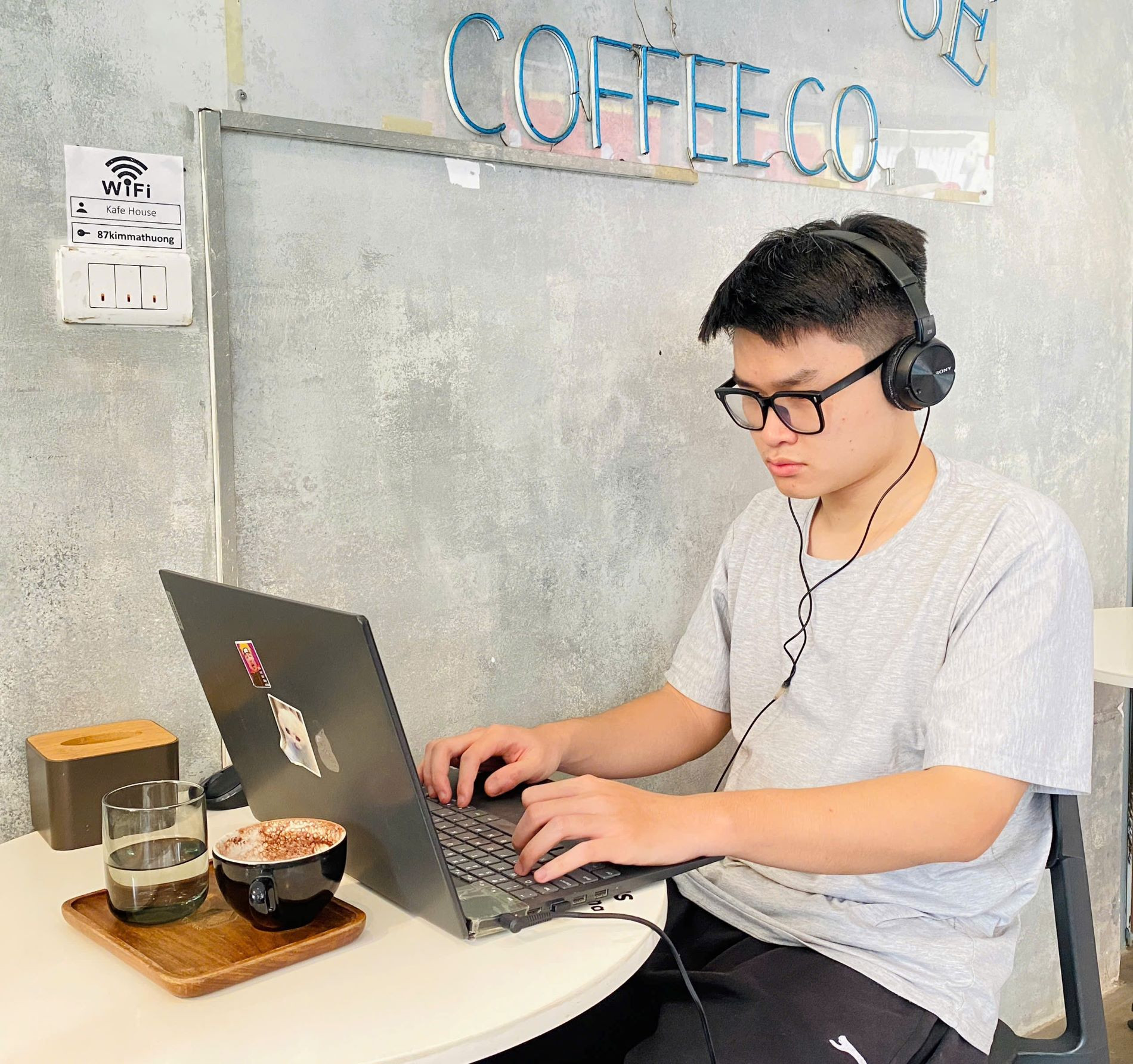Opting for cafés as study and work spaces over staying home or using campus libraries is becoming increasingly popular among students - despite the acknowledged cost of this lifestyle.
Why are students drawn to studying in cafés?

Vu Thanh, a final-year student at the Academy of Journalism and Communication, shared that he frequents a nearby coffee shop 3 to 4 times a week to write his internship report and prepare for graduation exams.
“When I study here, I stay focused and feel more motivated,” Thanh explained. “At home, I get distracted easily by my phone or TV. I also tend to feel bored or just want to sleep all day. The open space at a café, seeing others studying and working, gives me a push to be more productive.”
Phuong Anh, a third-year student from Ninh Binh, said she prefers the ambiance of cafés, especially on weekends when the school library is closed. “Cafés are the best option,” she said.
However, Phuong Anh admitted she has to limit these visits due to the expense. “Sometimes, the cost of a drink is equivalent to lunch or dinner. My café study sessions consume about 10-15% of my monthly budget from my parents. Since I’m not earning yet, I can’t afford to spend too much on this.”
For Dang Khoi from Hanoi, who was born in 2005 and has ADHD (Attention Deficit Hyperactivity Disorder), home is his ideal study environment due to the need for quiet and privacy. But occasionally, he joins group study sessions at cafés, especially for difficult assignments or subjects that require memorization. “Studying with friends in a café makes it easier to exchange ideas and fuels creativity, which improves learning,” Khoi said.
A significant expense for students
Self-studying or group study sessions at cafés have become common among Gen Z students. Whether this approach is effective depends on individual cases, but one clear fact is that these sessions can significantly impact a student’s already limited budget.
Minh Anh, a student born in 2003, shared that she studies at cafés 2–3 times a week. Drinks usually cost between VND 45,000 and 65,000 (USD 1.80 to 2.60), with higher prices at places designed specifically for working and studying. During peak exam seasons, Minh Anh can spend over VND 1 million (about USD 40) monthly at cafés to stay focused during study sessions.
“I work part-time, so I can afford it,” she said. “But I think students should consider carefully before spending too much time and money at cafés just because it’s trendy or feels ‘chill.’ Avoid wasting resources unnecessarily.”
Dr. Bui Thi Van, lecturer at the Faculty of International Relations, Academy of Journalism and Communication, said studying in cafés can be effective if students use the space wisely.
“Some research shows that flexible and comfortable learning environments can boost concentration and creativity, especially for those who need variety in their study settings. For group discussions, cafés offer a relaxed atmosphere that traditional libraries might lack,” Dr. Van noted.
However, she cautioned that without proper control, this trend could turn into a form of wasteful behavior. Frequent spending on drinks combined with the potential for noise and distractions could reduce learning efficiency. Moreover, cafés cannot replace libraries or study rooms that offer extensive learning resources and quiet spaces ideal for deep study.
Dr. Van emphasized that Gen Z students have the advantage of easy access to technology and modern learning methods, but they shouldn’t depend solely on cafés or cram before exams. For improved learning outcomes, she suggests applying evidence-based techniques such as the Pomodoro method - 25-minute study intervals followed by 5-minute breaks to avoid mental fatigue.
To avoid last-minute studying, students should manage their time efficiently by creating weekly or monthly study plans. Lastly, she reminded students to prioritize their mental and physical health, as a healthy body and clear mind are essential for effective learning.
Ngoc Anh